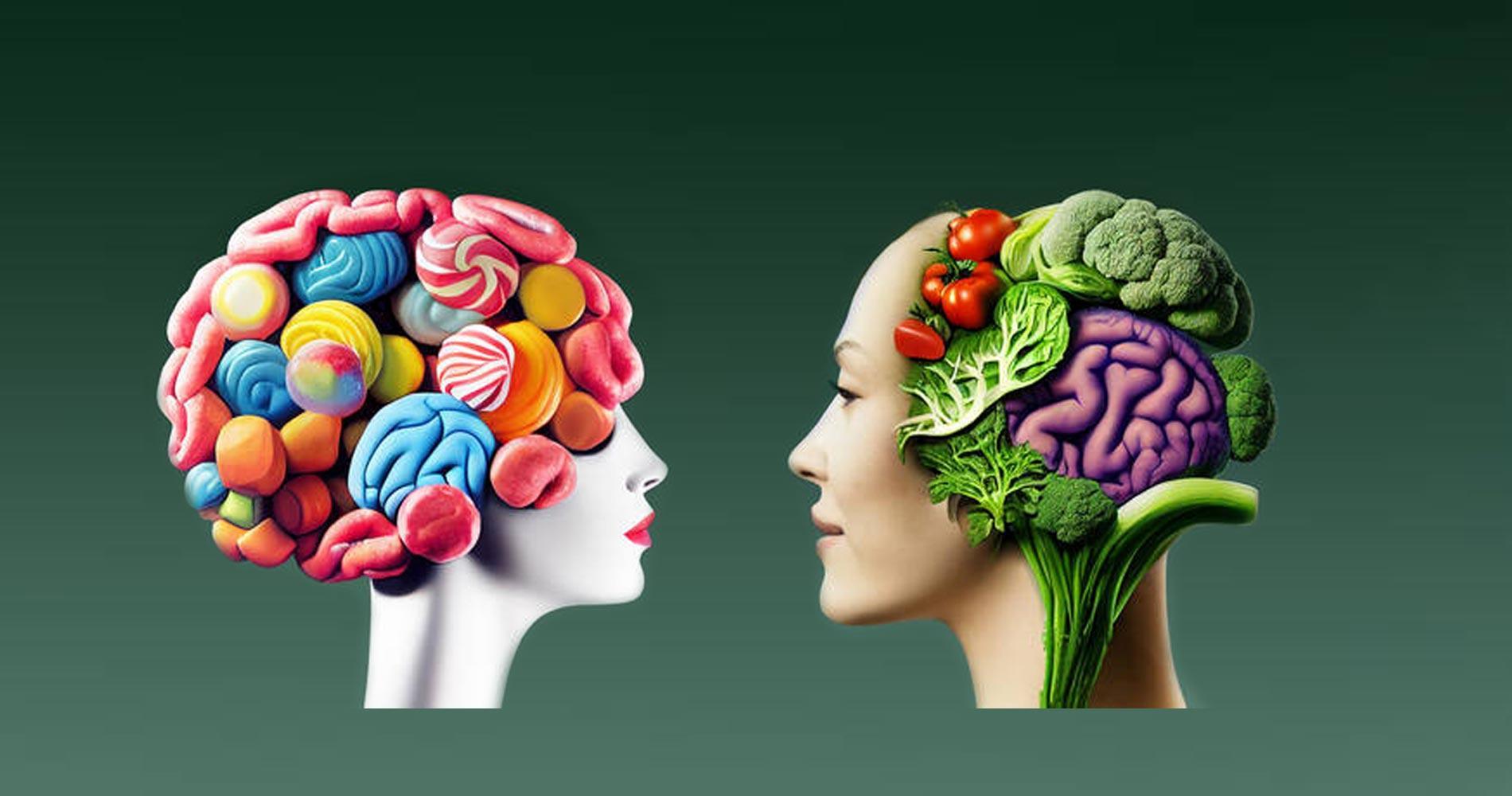Research into the long-term relationship between brain function and the food we eat has been published in the respected academic medical journal Neurology® and raises both optimism and further questions. Consuming food with the possible miracle chemicals, known as antioxidant flavonols, may slow the rate of memory decline, a medical condition closely associated with the increasing rate of Alzheimer’s Disease, a form that includes dementia. What are the implications of this cutting-edge research for our daily diets?
Bruce McMichael, 23 March 2023
German version | Spanish version
‘We are what we eat’ is an oft-used expression that correctly suggests our body’s health and appearance are partly due to what we consume. Other environmental factors also have an influence, such as weather, hard manual labour and genetics. But when in 1826, French politician, lawyer, and famed gastronome Jean Anthelme Brillat-Savarin, wrote these words, ‘Tell me what you eat, and I will tell you what you are’, he stumbled upon a truth. Now, scientific research into the effects of food and its nutrients on long-term brain function is introducing food for thought.
An intriguing study published online in the 22 November 2022 issue of Neurology®, the medical journal of the American Academy of Neurology, highlights how consuming foods with chemicals known as antioxidant flavonols may slow the rate of memory decline. The study was called ‘Association of Dietary Intake of Flavonols With Changes in Global Cognition and Several Cognitive Abilities’.
Bioactives are chemicals found in plants and food groups such as fruits, vegetables, nuts, oils, and whole grains. Researchers sought to discover any correlation between one particular group of bioactives known as flavonoids. Flavonols are part of a larger chemical group known as flavonoids and are found in several fruit and vegetable groups and fermented foods such as wine and tea.
“It’s exciting that our study shows making specific diet choices may lead to a slower rate of cognitive decline,” says lead research author Thomas M. Holland, MD, at Rush University Medical Center, Chicago speaking to Neurology®. “Something as simple as eating more fruits and vegetables and drinking more tea is an easy way for people to take an active role in maintaining their brain health.” The research team screened a cohort of 961 healthy people. The group had an average age of 81 and no previous diagnosis of Dementia or Alzheimers.
Across the world Dementia, specifically Alzheimer’s disease, is increasingly prevalent among ageing populations. While there is no known cure for the condition, medical and health practitioners are actively researching ways of reducing risk factors to minimise the negative effects of a person’s health. Making better food choices (less processed foods, reducing alcohol consumption, better nutrition) and regular exercise are two ways research suggests can help. In addition, eating highly processed foods, those high in sugar and salt, is linked to conditions such as diabetes, hypertension and obesity.
Cognitive or mental decline is caused by a combination of genetic, lifestyle and environmental factors, says Dr Tian-Shin Yeh, a research fellow at Harvard T.H. Chan School of Public Health. Yeh was a co-author of a 2021 study, also published in Neurology®, that examined the diets and perception of subjective cognitive decline of 77 000 US adults enrolled in the Nurses’ Health Study or the Health Professionals Follow-up Study. Participants in this study completed several questionnaires over a 20-year period that asked how often they ate certain foods while researchers measured their flavonoid intake.
The published results of the most recent 2022 study show that mental decline was slowest in those who consumed the most flavonols. According to Holland and Co., this is due to flavonols’ anti-inflammatory and antioxidant effects. Researchers removed influencing factors such as age, gender, smoking and previous illnesses.
Holland & Co. divided the cohort into five groups based on the quantity of flavonols each consumed. The group’s eating habits were tracked over seven years and included regular tests for memory and recall. In addition, external and environmental issues were also factored in, measured and recorded and included parameters such as the level of education, physical activities and hobbies such as reading or playing sports.
Both the Holland & Co. and Yeh studies offered similar conclusions; that people consuming extra amounts of flavonoids had a lower risk of mental decline.
The researchers also looked at the cognitive effects of specific flavonol components found in the food items participants frequently consumed. These included Kaempferol, Quercetin, Isorhamnetin and Myricetin. The team then analysed which flavonols are particularly protective. These included Kaempferol, which is found in kale, beans, tea, spinach and broccoli; Quercetin, which is seen in tomatoes, apples and tea, among other things; Myricetin, which is in kale, tea and tomatoes are also found in oranges, and Isorhamnetin, which is found in olive oil, pears, tomatoes and wine, for example. The statistical correlation was strongest with Kaempferol, followed by Myricetin and Quercetin.
In a statement, Holland said that “something as simple as eating more fruits and vegetables and drinking more tea is an easy way for people to take an active role in maintaining their brain health”. Although the sample population was white, highly educated, and from the US Midwest, the results apply to all genders, ethnic groups and income/education level.
Many flavonols are also increasingly associated with gut health and the microbiome. The US-based National Institute of Environmental Health Sciences defines the microbiome as the ‘collection of all microbes, such as bacteria, fungi, viruses, and their genes, that naturally live on our bodies and inside us’.
Actor Chris Hemsworth, star of the movie franchise Avengers in which he plays the god Thor, was featured in a short run TV-series ‘Limitless’ backed by National Geographic. In the series, he undertakes a range of physical, mental and environmental challenges focused on learning how to extend a human’s life and maintain an active brain. The show is broadcast on Disney+.
Hemsworth’s grandfather is living with Alzheimer’s disease, and the actor carries two copies of the APOE4 gene variant, which is associated with an eight to tenfold increased risk of developing Alzheimer’s disease. “The idea that I won’t be able to remember the life I’ve experienced, or my kids, or my wife, is probably my biggest fear,” he says while introducing the series.
Additional research published in October 2012 by the UK-based journal Neuroscience® has concluded that gut microbiota is linked to the central nervous system, possibly through neural, endocrine and immune pathways, and so influences brain function and behaviour.
Elsewhere, UK-based charity Age UK argues that meaningful interactions and an active social life work against potentially harmful effects to the brain. Particularly detrimental to brain function is stress. Other ways believed to enhance and strengthen neurological pathways through stimulating memory and boosting attention spans include spending time outside, exercising and keeping hydrated.
Research has led the scientists, and in particular the Holland & Co. team, to postulate that the ‘results suggest dietary intakes of total flavonols and several flavonol constituents may be associated with slower decline in global cognition and multiple cognitive abilities with older age’.
So, it might be prudent to increase your intake of fruit and veg such as kale, grapes and green tea to keep your mind stay sharp and live a longer and healthier life.







